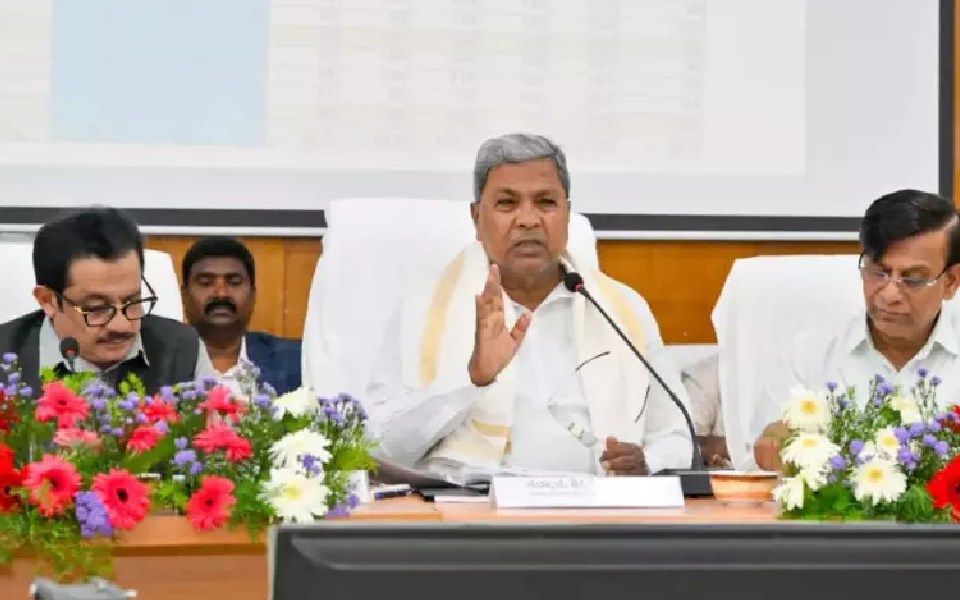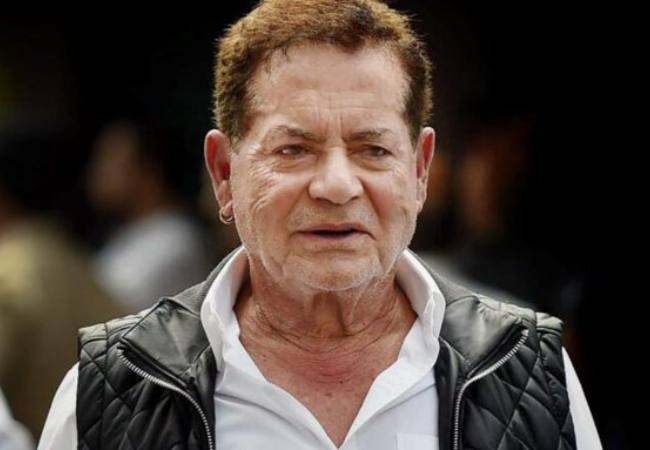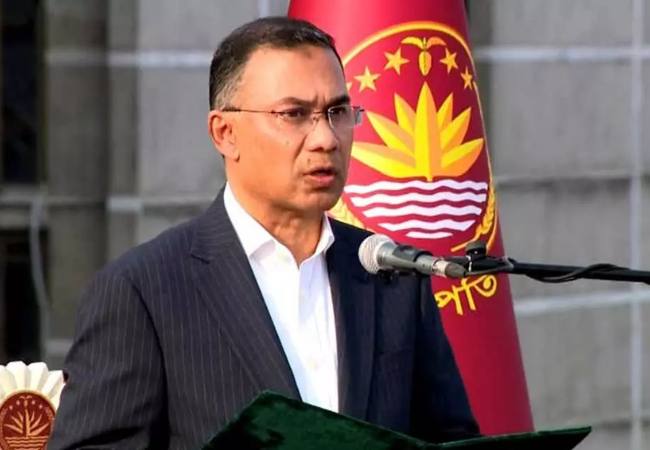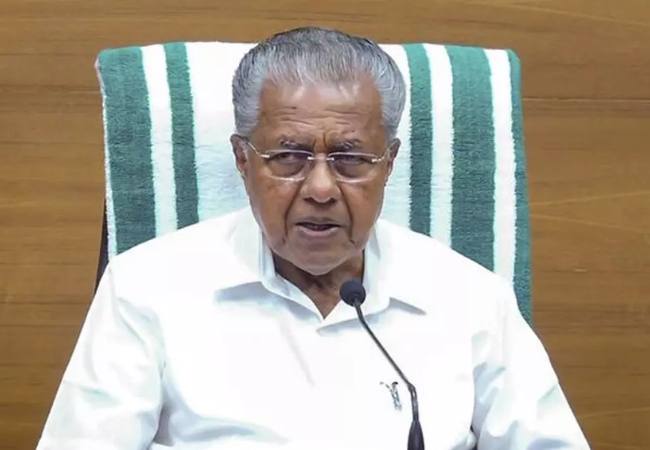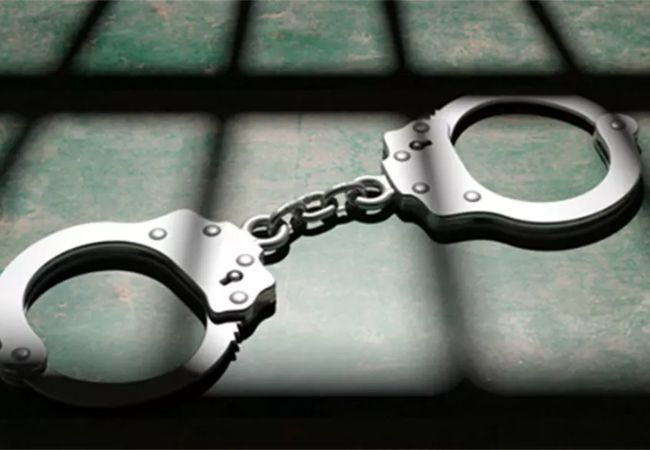Bengaluru, Feb 18 (PTI): Karnataka Chief Minister Siddaramaiah on Tuesday said that the government is committed to implementing the caste census report.
He said people should not doubt the intention of his government.
"The caste census was conducted scientifically and our government will definitely implement it. There should be no doubt about it," Siddaramaiah said after participating in a pre-budget meeting at Vidhana Soudha with leaders of backward classes and representatives of backward class organisations.
The chief minister said the government is in favour of the caste census.
"Our government has accepted the caste census report. It will definitely be implemented in the coming days," he said.
When the representatives demanded an increase in reservation on the Tamil Nadu model, Siddaramaiah referred to the 1992 Indira Sawhney case and informed them that the reservation should not exceed 50 per cent, and that the previous government's provision of reservation for the economically backward (EWS) was against the spirit of the Indian Constitution.
According to Article (15)(16) of the Constitution, reservation should be given only to the socially and educationally backward, he said.
The caste census report has been prepared scientifically and is useful for understanding the social, economic and educational status of all sections of the society. Accordingly, it will be helpful in formulating government programmes, he said.
The important question is why equality has not been achieved even after so many years. Some people are opposing it due to misunderstanding, the CM noted.
"The aim of our government is to bring the poor, backward, minorities and women into the mainstream," he said.
Siddaramaiah said inequality must go as a large number of people are deprived of opportunities due to the inequality created by the caste system. Everyone should be given equal opportunities, whether they are from the lower community or the upper class.
The chief minister also pointed out that there is discrimination and inequality among the backward castes as well, which cannot be eliminated all at once.
The Karnataka Socio-Economic and Education Survey report, commonly known as the ‘Karnataka caste census’ was commissioned by the previous Siddaramaiah-led Congress government in 2015, with then Backward Classes Commission chairman H Kantharaju heading the committee.
The survey, conducted at a cost of approximately Rs 169 crore, was completed by 2016 but subsequent governments kept it in cold storage.
In 2020, the BJP government appointed Jayaprakash Hegde as the commission chief. Hegde submitted the final report to the Siddaramaiah government on February 29, 2024.
Responding to the demand for free education for the nomadic community, Siddaramaiah said the government has ensured the Right to Education (RTE). Accordingly, the government has allowed free education in government schools and private educational institutions as well.
He said that special attention would be paid to the nomadic community in this budget.
Siddaramaiah also said that he will try to implement programmes for the most backward classes in this budget. He also promised to formulate programmes for the backward classes according to the availability of funds.
Let the Truth be known. If you read VB and like VB, please be a VB Supporter and Help us deliver the Truth to one and all.
Mumbai (PTI): Veteran screenwriter Salim Khan suffered a brain haemorrhage which has been tackled, is on ventilator support as a safeguard and stable, doctors treating him said on Wednesday, a day after he was admitted to the Lilavati Hospital here.
The 90-year-old, one half of the celebrated Salim-Javed duo which scripted films such as "Sholay", "Deewar" and "Don" with Javed Akhtar, is in the ICU and recovery might take some time given his age.
"His blood pressure was high for which we treated him and we had to put him on a ventilator because we wanted to do certain investigations. Now the ventilator was put as a safeguard so that his situation doesn't get worse. So it is not that he is critical," Dr Jalil Parkar told reporters.
"We did the investigations that were required and today we have done a small procedure on him, I will not go into the details. The procedure done is called DSA (digital subtraction angiography). The procedure has been accomplished, he is fine and stable and shifted back to ICU. By tomorrow, we hope to get him off the ventilator. All in all, he is doing quite well," he added.
Asked whether he suffered a brain haemorrhage, the doctor said, "Unko thoda haemorrhage hua tha, which we’ve tackled. No surgery is required.
As concern over Khan's health mounted, his children, including superstar Salman Khan and Arbaaz Khan, daughter Alvira, and sons-in-law Atul Agnihotri and Aayush Sharma, have been seen outside the hospital along with other well-wishers. His long-time partner Akhtar was also seen coming out of the hospital.
Khan, a household name in the 70s and 80s, turned 90 on November 24 last year. It was the day Dharmendra, the star of many of his films, including "Sholay", "Seeta aur Geeta" and "Yaadon Ki Baraat", passed away.
Hailing from an affluent family in Indore, Khan arrived in Mumbai in his 20s with dreams of stardom. He was good looking and confident he would make a mark in the industry as an actor. But that did not happen. And then, after struggling for close to a decade and getting confined to small roles in films, he changed lanes.
He worked as an assistant to Abrar Alvi and soon met Akhtar to form one of Hindi cinema's most formidable writing partnerships. They worked together on two dozen movies with most of them achieving blockbuster status.
Other than "Sholay", "Deewar" and "Don", Khan and Akhtar also penned "Trishul", "Zanjeer", "Seeta Aur Geeta", "Haathi Mere Saathi", "Yaadon Ki Baarat" and "Mr India".

